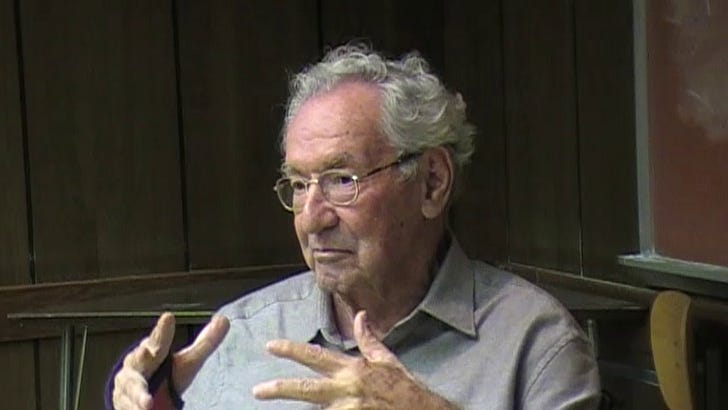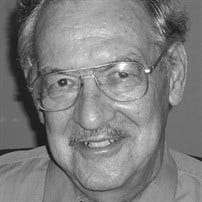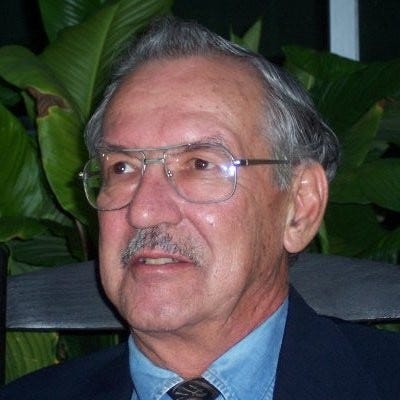The following is an obituary for Dr. Henry S. Pennypacker published in the Gainesville Sun on September 15, 2023:
Dr. Henry Sutton (Hank) Pennypacker, 86, passed away suddenly but peacefully due to a fall at his home in Gainesville, Florida on September 12, 2023.
He was born in Missoula, Montana on May 27, 1937 to Henry S. Pennypacker Sr., and Ann (Chiasson) Pennypacker. He graduated from Lakeside School in Seattle, Washington before attending Whitman College where he met Susanne Farwell in 1954. They were married in 1955 and moved to Missoula. Hank earned bachelor's and master's degrees from the University of Montana. Together with their three young children, Hank and Susanne then moved to Durham, North Carolina where he earned his Ph.D. in Psychology from Duke University in 1962.
He then joined the faculty of the University of Florida at age 24. Although his early research focused on nonhumans, he soon turned to instructional design at the collegiate level and founded and built the University of Florida's Behavioral Analysis program into a national leader.
In the late 1970's, he led research and training in the area of breast cancer detection and co-founded Mammacare Corporation in 1981. Mammacare's training systems soon were widely used in medical schools throughout the United States and abroad. This work has been widely recognized in the behavioral medicine and cancer prevention communities.
Attaining the title Professor Emeritus at the University of Florida, Dr. Pennypacker was a major figure in behavior analysis through his contributions in research, teaching, and service. He also made significant contributions to instructional design through his work in precision teaching. His book Strategies and Tactics of Behavioral Research (with James M. Johnston, Ph.D., now in its third edition), has become a classic and essential reference on methodology in behavior analysis. He helped to establish the University of Florida as a model for behavioral-based treatment in the area of developmental disabilities.
Dr. Pennypacker served as president of the Florida Association for Behavior Analysis and of the Association for Behavior Analysis International (ABAI). He also consulted with the State of Florida and the United States Navy.
Dr. Pennypacker was chairman of the Cambridge Center for Behavioral Studies since 2001. The Center's mission is to advance the scientific study of behavior and its humane application to the solution of practical problems, including the prevention and relief of human suffering.
He authored or co-authored several books, dozens of book chapters, and more than one hundred scholarly articles. He also helped obtain US and international patents.
Perhaps his greatest professional accomplishment is his legacy of dozens of graduate students and hundreds of undergraduate students, who were trained to use Hank's behavioral analysis techniques, to publish articles, write books, found companies and inspire students in this new field of study and research.
Apart from his academic and business career, Hank was an avid guitarist starting with the Snake River Outlaws as a young man in Montana and ending with his last gig with the Oak Hammock Rockers. He treasured his time trout fishing the streams of western Montana throughout his life having grown up in the Swan Valley. His affinity for automobiles included ownership of Porsches, BMWs, and a Mercedes diesel. As a private pilot, he enjoyed the challenge of instrument flying. Hank cherished his dogs and never met one he didn't love.
Hank had a wonderful sense of humor and delighted in interactions with cashiers, wait staff, physical therapists, doctors - essentially anyone he encountered. He made everyone he met feel special and valued.
He is survived by his wife of 68 years, Susanne, daughters Marcea Kligman (Dr. Kenneth Kligman) and Dr. Leslye Pennypacker (Ben Masterton), son H. Stephen Pennypacker (Teresa Drake) granddaughters Dr. Ashley Pennypacker Hill (Adam Hill), Brittany Kligman, Courtney Weitz (Paul Weitz), Leah Werker (Travis Werker) and Carson Pennypacker (Brandon Kendall) and grandsons Benjamin Johnson and Henry (Sam) Johnson and seven great-grandchildren.
In keeping with his lifetime interest in education, a celebration of life will be held on November 18, 2023, at the P. K. Yonge Developmental Research School in Gainesville, Florida at 10:00 a.m.
In lieu of flowers, contributions can be made to the Cambridge Center for Behavioral Studies or P. K. Yonge Developmental Research School.
https://www.gainesville.com/obituaries/pgai0572710
The University of Florida Behavior Analysis program interviewed Hank in 2020
Hank: A Story of Being Seen, Graduate Seminars, and Friendship
I first met Hank back in 2015 when I began my graduate studies at the University of Florida. Despite technically being "retired," he was a regular attendee at our weekly Monday seminar known as 622. This was where graduate students presented their research, often causing a fair share of anxiety for those in the spotlight. With a room full of some of the brightest minds in the field, that's to be expected. Nevertheless, it was an enjoyable hour filled with enlightening discussions.
I personally enjoyed hearing the feedback provided by faculty members and observing how they shaped research proposals. But what really made our Mondays special was Dr. Hank Pennypacker's comments. Always kind. Always succinct. Always made you feel smarter than you might feel (speaking for myself here). And when he did offer feedback, it was always insightful. It's worth mentioning that Hank never missed a single 622 session, even though he was technically retired. It was clear that he loved learning and teaching.
Fast forward to 2022, and despite seeing Hank every Monday during 622, I had yet to have a true conversation with him. In the spring of 2022, my wife and I decided to email him and see if he'd be up for grabbing coffee. We were simply curious to learn more about his journey in the field, his interests, hobbies, and life experiences. Initially, his response seemed to suggest he couldn't meet, which left us wondering if he was politely declining.
However, about a month later, he surprised us with an email expressing his willingness to meet. For young researchers like us, being acknowledged by someone as significant in the field as Hank meant a lot. He could have easily declined, but he chose to make us feel seen. (It was only after he passed that I learned that a “Hankism” was responding to "It's good to see you" with "It's nice to be seen." I think I'll start using that now.).
Hank and his lovely wife, Susanne, graciously invited us into their home, and we had a wonderful time. They were incredibly warm and kind, sharing stories about growing up during the civil rights era, their involvement in social justice causes, and the meaningful work they had done over the years.
Around that time, I was also using Hank and Dr. Francisco Perez's textbook, "Engineering the Upswing," to teach my "Behaviorism and Contemporary Society" course at UF. We had many discussions about the subject. During one of these conversations, Hank invited me to join him and Frank during their Tuesday meetings, where they discussed ways to promote the science of behavior to a broader audience. This was where we developed the idea to write essays about behaviorism and share them through Substack.
Hank never missed a Tuesday meeting. The last time we were together was on September 5th, 2023. I miss him dearly.
Faris
My Personal Journey with Hank
I first met Hank Pennypacker when I was a senior majoring in psychology at the University of Florida in 1968. I took his class introducing behavior and learning, focusing on the science of behavior. I became intrigued because it challenged me to see psychology as the natural science of behavior, not a mentalistic construct. I just wanted to be a clinical psychologist. I got accepted to the Ph.D. program at the University of Florida, and Dr. Paul Satz became my advisor and mentor. He introduced me to neuropsychology, and I was hooked. It so happened that Paul and Hank were colleagues but also friends, and both had a natural science of behavior approach to psychology.
I focused on my neuropsychology training, the science of brain/behavior relationships, and continued taking courses with Hank. When it came time to organize my dissertation committee, I chose Paul and Hank as co-chairs. My dissertation was about the decision-making behavior process that clinical neuropsychologists engage in to make accurate clinical diagnoses. By then, Hank had introduced me to Standard Celeration charting as a refined measurement approach to quantify behavior frequency and behavior frequency change over time. Hank, along with Ogden Lindsley, were pioneers in the Precision Teaching Movement. In my dissertation acknowledgments, I thanked him for “helping me see the light.”
I also spent a great deal of time with Hank and other colleagues training teachers in Precision Teaching. I was a founding member of the 622 initiative that Hank started for his graduate students and that continues to this day.
One of the many contributions he made to the field of behavior analysis was in precision teaching. Precision teaching is a measurement and decision-making technology that uses frequency and rate of change in behavior as basic data. It focuses on observable behavior and uses data to guide decision-making while also having learners interpret their own performance data.
The 4 pillars of Precision Teaching include:
Focus on Directly Observable Behavior
Frequency as a Measure of Performance
The Standard Celeration Chart
The Learner Knows Best
I was fortunate to have been trained by Hank to use and apply Precision Teaching methodology in my clinical and scientific practice. Through Hank, I obtained my first job out of graduate school. I was hired at the University of Houston after Hank visited, gave a talk about precision teaching, and recommended me for a faculty position. I came to Houston in 1972 and taught precision teaching and consulted with the Houston Independent School District, training and supervising teachers to implement a comprehensive district-wide precision teaching program. Unfortunately, as often happens, politics killed the initiative, and I then moved to my primary field of training, neuropsychology.
Gradually, as often happens, you lose contact with those who matter. I saw Hank occasionally when I attended some meetings, but eventually, life got very busy and took me in a different direction. I stopped going to those meetings, so I did not see or talk with Hank for about 20 years.
The COVID-19 pandemic arrived, and I became nostalgic, with Hank on my mind. I had lost his contact information, and he had retired from The University of Florida. I connected with him via LinkedIn. I sent him a private message, and he responded within a few hours. We talked extensively over the phone, and it felt like old times as we caught up. We agreed to meet via Zoom, which I christened as “Tuesdays with Hank.” We both read Robert Putnam’s newly published book, "The Upswing." We discussed it over the weeks. It was a well-researched and documented sociological treatise about the gradual ups and downs of our American culture. Putnam concluded that the health of our culture is driven by behavior. We were hooked and proceeded to write "Engineering the Upswing: A Blueprint for Reframing our Culture" (2022). I am so privileged to have worked closely with Hank for about a year, researching and writing our book.
Hank and I became very close and continued our weekly “Tuesdays with Hank” up to the week before he died. We started writing our Substack, and Faris joined us, making significant contributions. I am so happy that I met Faris through Hank. Now it is up to us and those who join us to raise awareness about how our culture is being driven by behavior and how much of it is bad behavior. But most importantly, we can work together to turn it around and drive an upswing of prosocial behavior.
I miss Hank, our close friendship, his steady and wise guidance, his instinct for timing, his sense of humor, and, above all, his scientific compass. He will be sorely missed in our scientific community, but mostly by those of us who counted him as a mentor and close friend.
Frank








Thanks Mike. I am glad that you got a glimse of him. He was solid, kind as well as unassuming, gentle and encouraging all the time. He was a great teacher, mentor but was always eager to learn and try something new to him. He is sorelly missed.
Thanks Mike. Hank was a wonderful person whom I will miss a lot.